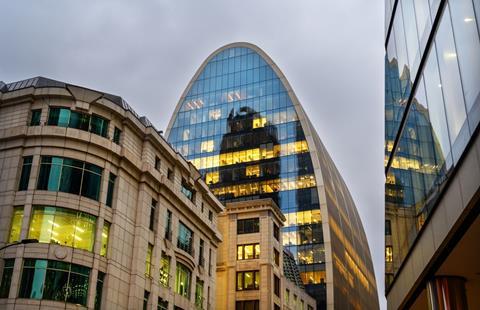Firm’s profit hit by restructuring costs and fall in transport work
Costain has said it will complete a move to its new head office in the City of London over the summer.
The firm is taking one floor at 70 St Mary Axe, better known as the Can of Ham, after deciding to relocate its headquarters away from Maidenhead in Berkshire.
Chief executive Alex Vaughan said around 140 people will move to the new office close to Liverpool Street station by August, adding the decision had been made because “it is a better place to connect all of our teams”.

The firm will keep a base in Maidenhead for support functions such as IT and finance.
He was speaking as Costain said it spent a further £8m on ‘transformation’ and restructuring costs last year, on top of the £5.7m it racked up in 2022, with the firm adding that it expected to shell out a further £5m on similar costs this year.
The £8m bill and a £5.3m digital services impairment cost helped send the firm’s pre-tax profit down 6% to £31m on turnover also off by 6% to £1.3bn. Operating profit was down a third to £27m.
Vaughan blamed a slowing down in investment in new roads for the revenue fall with income and operating profit both down at the division which is mainly made up of road and rail work.
But he said the long-term prospects for infrastructure schemes such as roads and energy projects were sound. “The mood music is confident, we’re not expecting any big changes [because of the election],” he added. “There is cross-party consensus on what infrastructure is needed and when it’s needed.”
Costain said its net cash balance was up a third to £164.4m and Vaughan added: “The strength of a balance sheet is important and important to customers and suppliers. It’s a good measure of a business’s resilience.”
The firm said the underlying strength of the business meant it would be paying its first final dividend since 2019 with a planned payment of 0.8p per share. Costain resumed dividend payments last year with an interim dividend of 0.4p making a full year dividend of 1.2p.
Its order book at the year-end was £2.1bn, £700m down on 2022’s number, but its preferred bidder book was up £200m to £1.8bn.




























No comments yet